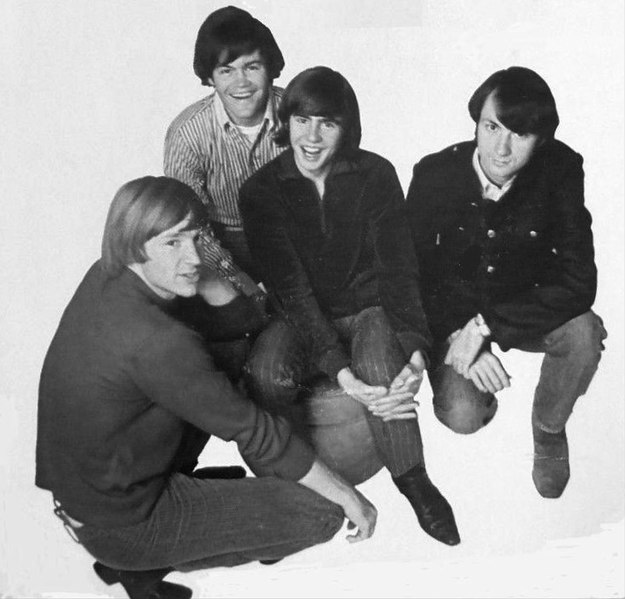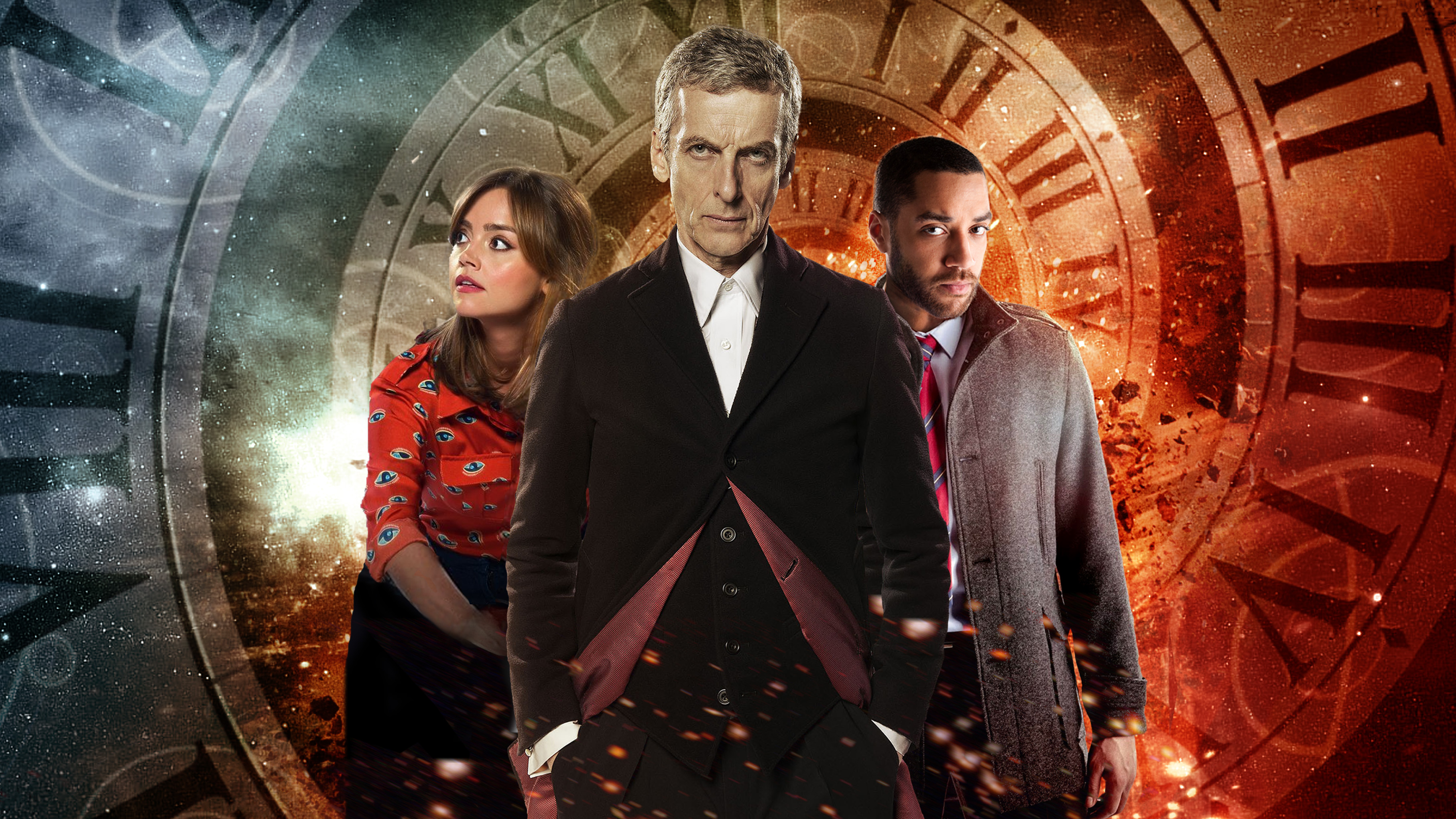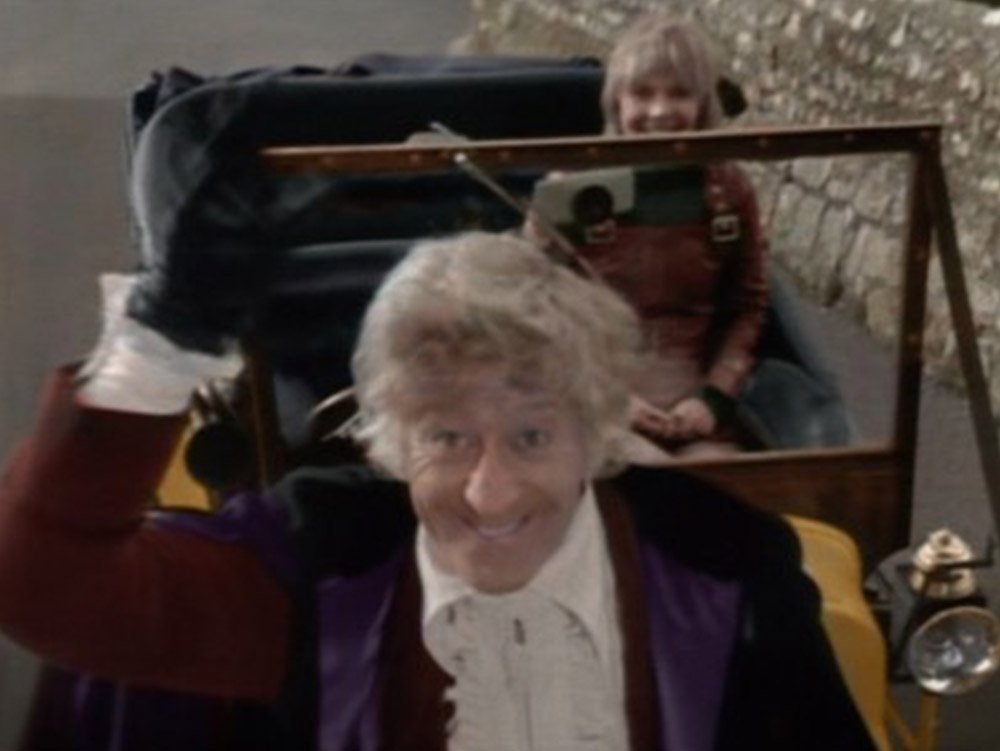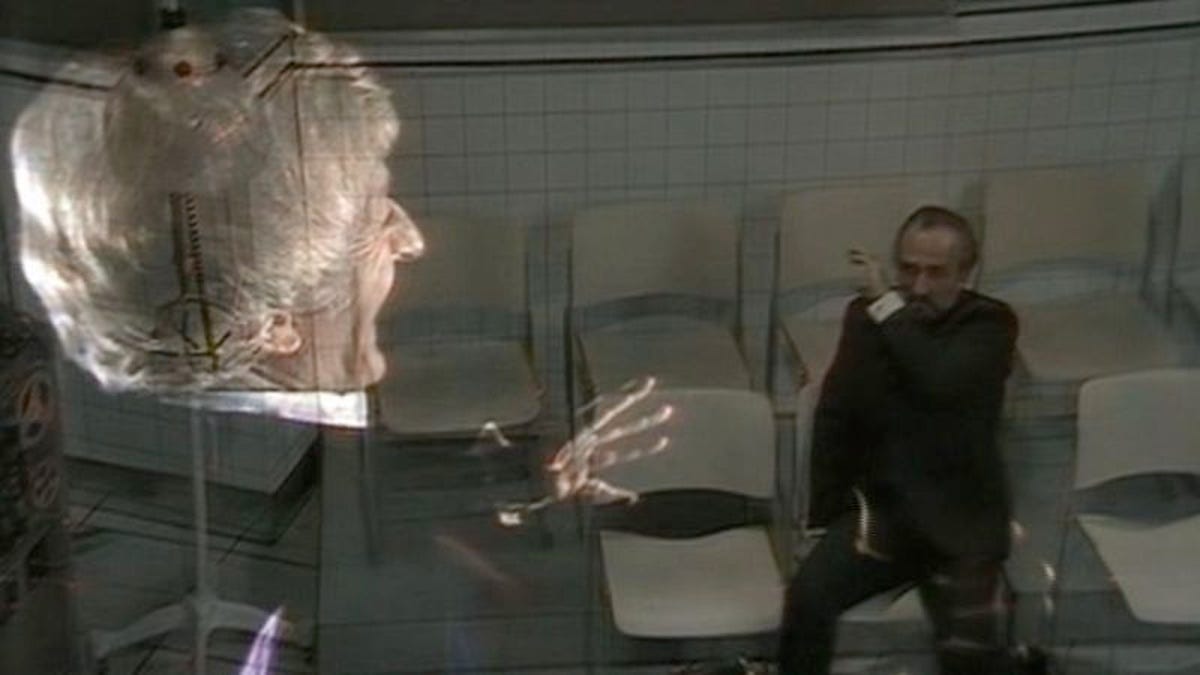
Context for those unfamiliar with Doctor Who
In the classic era of Doctor Who, stories were divided up into multiple episodes, in a serialized fashion. This story is six episodes long. The show follows The Doctor, the protagonist, on various adventures through space and time. Since Spearhead from Space, he’s been exiled to Earth and aiding the monster fighting-military organization, U.N.I.T. Other main characters are U.N.I.T. members, Jo, The Brigadier, Benton, and Yates, and the villainous “The Master”. This article is part of a review of Doctor Who‘s eighth season.
This one’s special. The serial starts with some Time Lords discussing the Doomsday Weapon, something only they and the Master know about. It must not be used. They realize they must get the Doctor involved. The Doctor and Jo go inside the TARDIS, the Time Lords make it take off and they’re sent to the planet Uxarieus. This is quite a big deal. This is the first time since 1969’s The War Games that we’ve had an adventure off-Earth.
Colony in Space is a fair romp. It’s a story one has probably seen a few times. An oppressed group, the colonists, is bothered by an overpowered and authoritative group. Even ignoring other movies and shows, this is the plot of one of the most famous classic Who stories, The Daleks. This is not to say that Colony should be more original, as it’s a much different flavor. The two stories were produced and released almost a decade apart.
In terms of the quality of the story, it’s average. When the character, Norton, is introduced, he’s unwell, and his performance is amusingly bad. He speaks of something bad that had happened to him, not that you really believe it. Another bad performance is for the character Jane Leeson, who we’ll get to later. A lot of the sillier bits of dialogue are poorly delivered. Generally this is stuff that’s formality for a story like this. Whenever characters have a civil disagreement, the stock lines are plentiful. The regulars and some of the more prominent guest actors do a good job with acting. A notable guest actor is John Ringham, though in his forties at the time, has an aged performance. Older actors are generally the best in Doctor Who.
Admittedly, the arguing dialogue is not all bad. Ringham’s character, Ashe, and another colonist, Winton, have some good back and forths, though the stock arguing lines are not resisted. The writing and directing are also unimpressive, but not bad. This story has two big successes. One is a spoiler and the other is the adventure. The serial is mostly a big battle. Characters get split up and have to go through mud and strife. Characters go on journeys and make discoveries. Characters learn surprising things. Colony is never boring. It wants to be a dumb action movie and that’s what it is. The story and pacing are good. The tension slowly stretches throughout the story. Ashe and Winton recurring disagreements paint a lot of their characters and the situation. Most of the characters in this story are pretty well written.
This show generally has bad fight scenes, but Episode 6 of this story has a good fight between two people. It’s not just one punch and you’re out. It looks real and is well filmed. While the directing is mostly standard, there are a few good moments in the fold.
We see more characterization of the Doctor. He gets some standard quippy lines like, “No. No, it’s quite healthy. Similar to Earth before the invention of the motor car.” I like how formally he speaks lines like that. The Doctor is rude to a character and is generally condescending. The Doctor looks forward to his exile on Earth as this predicament is dangerous and stressful. It’s an interesting juxtaposition to normal, where he wants to leave Earth. Jo once more is not stopped by the bologna she sees. She snoops around and speaks to the colonists, trying to convince them to be more active.
The alien race seen here, named “the Primitives”, look unconvincing. Once again, some people are slipped into thin costumes that look really bad. They don’t at all look interesting or threatening. They never do anything that makes them worth noting. It’s as if they left a different story and found their way in this one. Characters who come across them often brush them aside and move on.
SPOILERS
One well directed scene opened on the TARDIS, it’s then knocked over and the Primitives drag it off. That scene looked very good. This was only included as the whole adventure would’ve been quite short if the TARDIS was available. I briefly mentioned a character named Jane Leeson earlier. She gets her Oscar moment in Episode 1. She sees a person off screen and calmly asks of them. She then realizes they’re a threat and she’s terrified. Next thing we know, she’s dead. This scene looks so bad. The framing is off and it looks gross. It looks so awkward as it’s positioned so we can’t see the attacker. Jane’s actress is giving a laughably bad performance. Her terror is more amusing than anything. When we later see the machine that killed her, it doesn’t look at all like a person. Why would she react to it like it was initially?
The Doctor is investigating the area where Jane was killed and a scary robot appears. Insert closing credits music here. Turns out the machine is being operated by a friendly man named Caldwell who was just investigating the planet. The machine wasn’t going to harm the Doctor. I am not a fan of these cliffhangers. The Doctor was never in danger. I like the bit of mystery built as the Doctor and the audience don’t know if this guy is a friend or foe. Turns out, he’s a bit of both. He’s part of an expedition to mine this planet. The captain of the expedition, Dent, is quite villainous, as is one crew member, Morgan. Caldwell is quite nice and often disagrees with Dent’s villainous decisions. Dent’s a fun villain. He’s strict and nasty, but I love him for that.
A well written and performed scene features Dent cryptically telling Morgan to kill the Doctor. It’s not obvious if what he meant was that Morgan should kill him per se. Later, Dent directly tells Caldwell of what he’s done. We then cut to Morgan with a machine. We find out one of those machines killed Jane and cliffhanger. The Doctor disarms Morgan and escapes. I don’t consider this cliffhanger a fake, as its events were necessary for the Doctor to discover that Dent’s crew is responsible for the deaths as well as how they were done. Speaking of Dent’s crew, we get an amusing surprise that Norton has been a part of the expedition this whole time. The reveal is subtle, but well filmed. He goes to a quiet place, pulls out a communicator, and reveals himself to the audience. As tensions rise between the two groups, it’s decided that an adjudicator should be called to assess the situation. They’re referenced often.
Winton and Jo sneak onto Dent’s ship and are quickly captured. In an escape attempt, Winton successfully flees, but Jo is captured. We see Winton get back to his people and dodge some of Dent’s men, who are firing at him. This does a good job of showing how they act in such a situation. Jo is later captured by the Primitives. Her being passed around is silly, but it leads to an excellent cliffhanger. Jo is taken to a cave where her body except part of her face is bathed in darkness. Roll credits. The cliffhanger isn’t leading us to the next episode with a shot of a monster, it’s the uncertainty of the situation, what’s happening, and if it’s safe. Jo’s being taken somewhere by a group with unknown intent. The scene also looks very good.
The adjudicator shows up and when they appear, we see they’re the Master. The reveal was subtle and a good, unexpected surprise. I was enjoying the story without the Master and I didn’t want him to show up, but the main success of the story is with the Master. He gets a lot of good scenes with the Doctor. Everyone’s trying to fool everyone in this story, not only between the colonists and the expeditionists, but with The Master and Doctor. They’re both Time Lords. They’re using their tools and intelligence to get everyone to do what they want. The Master wants to do this for the Doomsday Weapon, the Doctor does it for peace.
The Doctor, discovering that Jo was taken by the Primitives, goes to their cave to offer food in exchange for Jo. He finds Jo, but is treated as a captive. We get a nice moment of the Doctor distracting a Primitive with a trick. Ah yes, the millionth time in the series a foolish guard was distracted by someone, only to be hit unconscious. Doc and Jo escape before almost immediately being recaptured. They’re taken to a little alien, who leads the Primitives. They sentence them to death for coming to the cave. The Doctor says Jo was forced there and he was just going to get her. The alien sees reason and lets them go, but says he’ll kill them if they return… what was the point in the Doctor and Jo escaping only to immediately be recaptured? Better yet, what was the point in this whole tangent of Jo being captured? Outside of the cave, the colonists and the expeditionists are constantly seizing control of one another. You’d think they’d learn their lesson! There’s a few fights which are all basically the same. Norton has a good death and the expeditionists seemingly win, before losing and leaving.
When the expeditionists win a battle, they make the colonists leave in a damaged ship they arrived on. When it leaves, the whole thing blows up. It’s later revealed that all the colonists except Ashe snuck out the ship. One person needed to stay in and Ashe volunteered. Ashe, despite his small amount of screen time, is a well written character. He wants to help his people, even at the cost of death. I don’t mind the cop out that the colonists didn’t die as there is emotional weight in Ashe dying. That’s not a cop out.
Episode 6 is mostly about the Master and the Doctor. Other than the damaged ship plot, it’s about the Master trying to get the Doomsday Weapon in the cave and the Doctor trying to stop him. The Primitive’s leader shows up and we essentially get a trial. The Master says that using the Doomsday Weapon will help them, but the Doctor reveals how this will fail. Dramatic dialogue sequences commonly work well in Who and this is no exception. The acting is top notch and the stakes are high. Annoyingly, we hear nothing of the leader saying he’d kill the Doctor if he returns. When the Doctor returns to the cave for the Master, he never worries that if he’s caught, he could be killed. That whole plot element is dropped. After the Doctor and the leader first met, why not have the leader just not bring that up? He would just let them go and that’s that. Alternatively, why have Jo be captured initially? Couldn’t Episode 6 be the first time we see the leader?
OVERVIEW
There’s something I really liked about this serial and it wasn’t obvious at first, but then I realized… this is Blake’s 7. Blake’s 7 is a classic BBC sci-fi drama about a group of seven fighting a large, authoritarian government. Just about every good thing and bad thing about Colony in Space is in Blake’s 7. I love both that show and this serial for their many triumphs and their many faults. One notable flaw is that the Doomsday Weapon is barely involved, despite how importantly it’s treated. This serial is a typical fun runaround and I can watch that junk all day.
This story loves captures and escapes. The same characters are captured and then escape several times. It’s almost comical how much that’s done. While that’s a flaw, it’s hilarious to watch. Colony loves being good, it loves being bad, and I love it for that. I thought 1969’s The Dominators was the best dumb Doctor Who serial, but it’s been dethroned.






